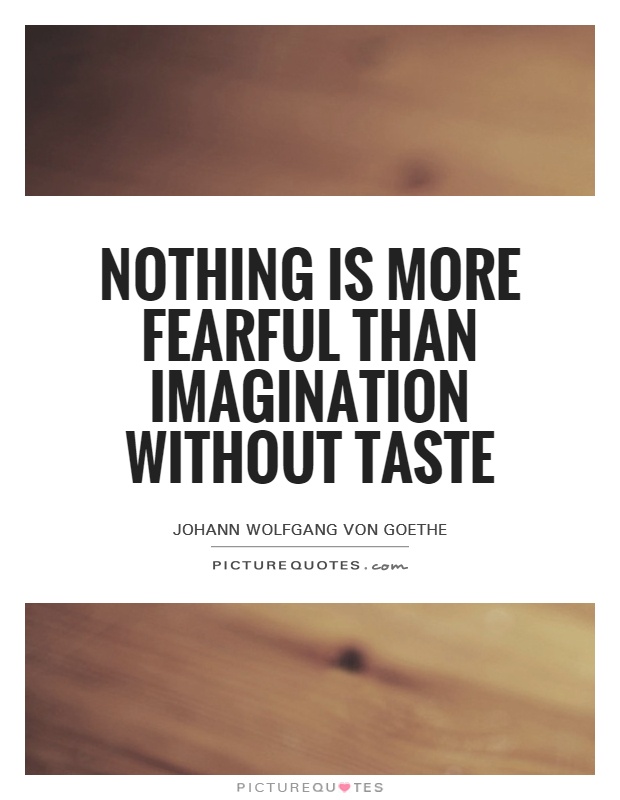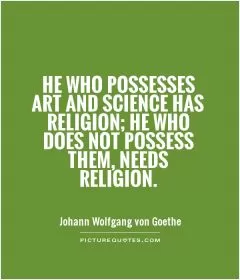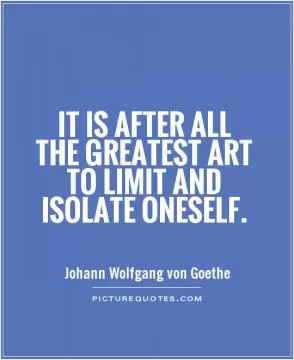Nothing is more fearful than imagination without taste

Nothing is more fearful than imagination without taste
Johann Wolfgang von Goethe, a German writer, poet, and philosopher, is often considered one of the greatest literary figures in Western history. His works, including the famous play "Faust" and the novel "The Sorrows of Young Werther," have had a profound impact on literature and culture. Goethe was a master of imagination, able to create vivid and compelling worlds through his writing. However, he also understood the importance of taste in art and literature.The quote "Nothing is more fearful than imagination without taste" speaks to the idea that creativity and imagination must be guided by a sense of aesthetics and discernment. Without taste, imagination can run wild and produce works that are chaotic, nonsensical, or even harmful. Goethe believed that art should be beautiful, harmonious, and meaningful, and that true creativity comes from a balance of imagination and taste.
In his own work, Goethe demonstrated a keen sense of taste and style. His writing is characterized by its elegance, clarity, and emotional depth. He was able to evoke powerful emotions and ideas through his use of language and imagery, creating works that have stood the test of time. Goethe's ability to combine imagination with taste is what sets him apart as a literary genius.
One of the most famous examples of Goethe's mastery of imagination and taste is his play "Faust." This epic drama tells the story of a man who sells his soul to the devil in exchange for knowledge and power. Through the character of Faust, Goethe explores themes of ambition, desire, and the human condition. The play is a masterpiece of German literature, blending elements of tragedy, comedy, and philosophy in a way that is both profound and entertaining.












 Friendship Quotes
Friendship Quotes Love Quotes
Love Quotes Life Quotes
Life Quotes Funny Quotes
Funny Quotes Motivational Quotes
Motivational Quotes Inspirational Quotes
Inspirational Quotes